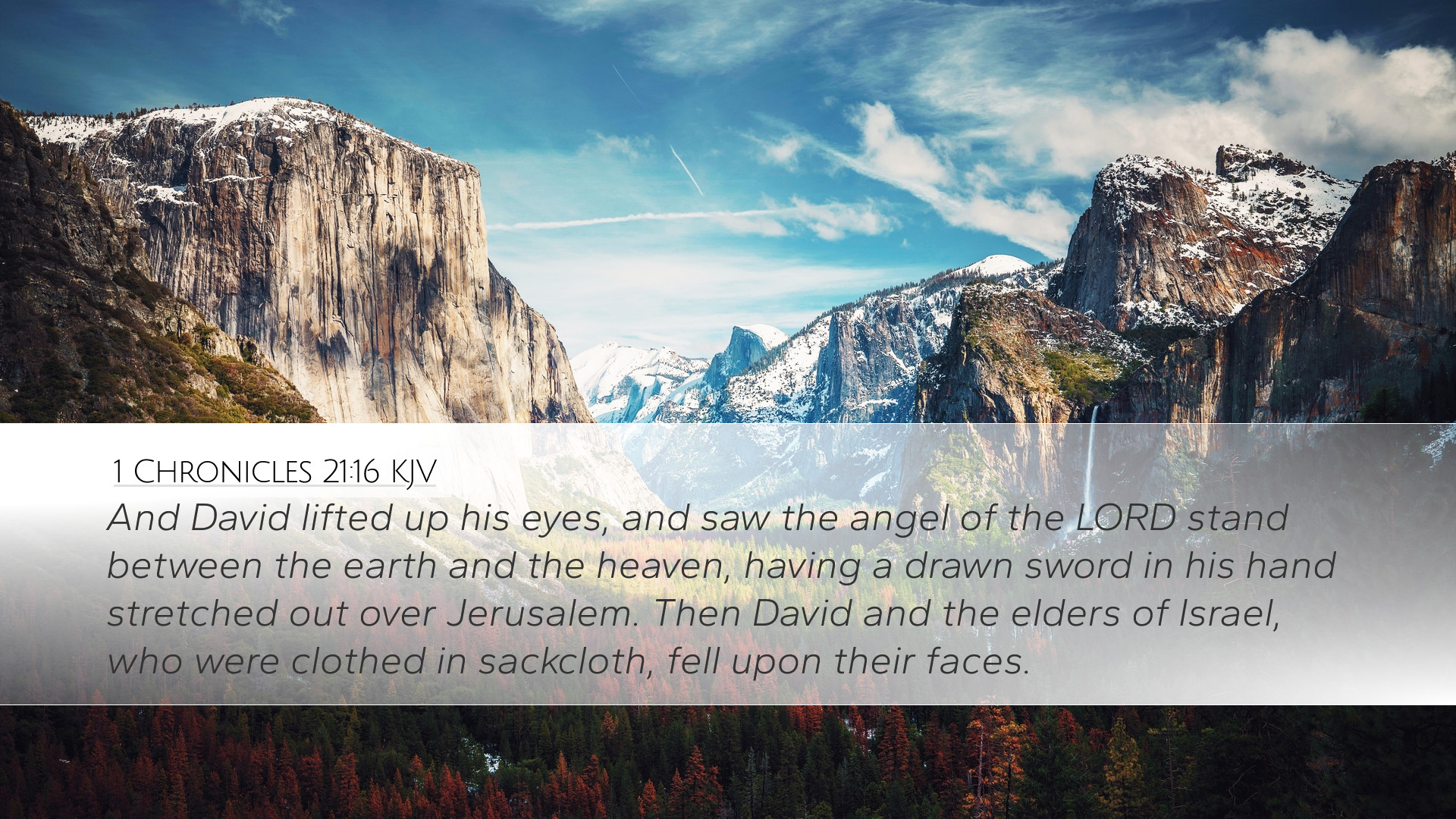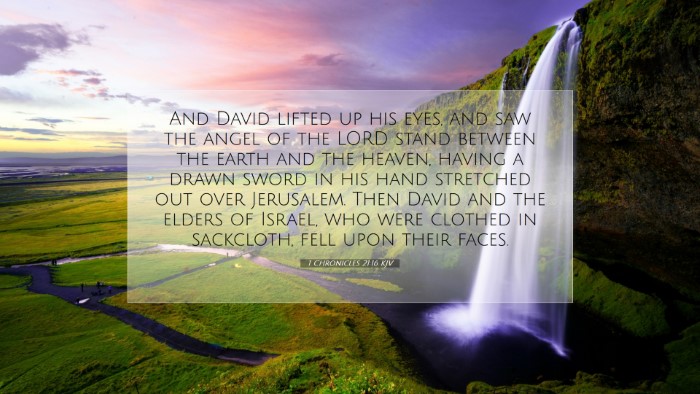Commentary on 1 Chronicles 21:16
Verse Context: 1 Chronicles 21:16 states, “And David lifted up his eyes, and saw the angel of the LORD stand between the earth and the heaven, having a drawn sword in his hand stretched out over Jerusalem. Then David and the elders of Israel, who were clothed in sackcloth, fell upon their faces.” This moment captures a significant turning point in David’s reign, highlighting themes of divine judgment and grace.
Overview
This passage occurs in the context of David's decision to conduct a census of Israel, which is portrayed as an act of pride and a lack of trust in God. The consequences of this action lead to a divine judgment that culminates in David witnessing the angel of the Lord poised to strike Jerusalem. The reaction from David and the elders emphasizes both remorse and urgency in seeking God's mercy.
Theological Insights
-
The Nature of Sin: Building on insights from Matthew Henry, the act of numbering Israel reflects a heart inclined to pride rather than reliance on God. This decision results in suffering, demonstrating how sin has tangible effects on the world around us.
-
The Angel of the Lord: According to Albert Barnes, the depiction of the angel standing between heaven and earth illustrates the intermediary role of divine beings. This scene signifies God's judgment yet also His control over the situation, balancing justice with grace.
-
Repentance and Humility: Adam Clarke emphasizes the posture of David and the elders; they clothe themselves in sackcloth — a sign of mourning and penitence. Their action signifies recognition of their wrong and a plea for divine mercy, fitting within the broader biblical narrative of repentance leading to forgiveness.
-
The Importance of Leadership: David’s leadership is scrutinized here. His actions affect not only himself but the whole nation of Israel. This accords with Matthew Henry’s thoughts on the responsibilities of leaders and the gravity of their decisions upon their people.
Historical Context
This passage occurs against the backdrop of David's long and often tumultuous reign as king. The census, which has been debated by scholars as either a prideful act or a military necessity, invites God's displeasure due to its implications of lack of faith in God's provision and protection over Israel.
Divine Judgment and Mercy
The appearance of the angel with a drawn sword indicates imminent judgment. However, as noted by Barnes, the angel’s stance between heaven and earth suggests a pause in judgment — a moment where intercession can take place. This reflects the character of God, who is both just and merciful, providing opportunities for repentance.
Application for Today's Context
For pastors and theologians, the passage serves as a profound reminder of the seriousness of sin, not only individually but corporately. In a culture that often minimizes the effects of pride and disobedience, this Scripture calls believers to a deeper examination of their motivations and actions.
-
Call for Introspection: In light of David's failure, leaders today should consistently seek God’s guidance and wisdom in their decisions, recognizing that what may seem a minor action can have significant repercussions for the community.
-
The Necessity of Repentance: Just as David and the elders expressed sorrow for their sins, modern congregations must foster a culture where repentance is embraced, understanding that it leads to restoration and healing.
-
Understanding Divine Intervention: The role of angels and divine messengers continues into modern times. Acknowledging this reality can enhance the faith community’s trust and reliance on God’s providence in times of trial.
Conclusion
1 Chronicles 21:16 serves as a rich text for reflection on leadership, the nature of sin, and the dynamics of divine wrath and mercy. By drawing on the insights of renowned public domain commentators such as Henry, Barnes, and Clarke, scholars can find profound theological and practical applications that resonate with the challenges faced by individuals and communities today.


